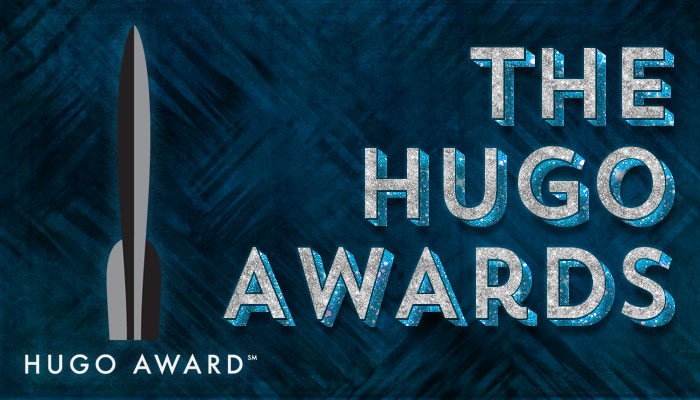Editor Edmund R. Schubert Withdraws from Hugo Awards
27 April 2015

Althea Kontis shares Edmund’s statement:
My name is Edmund R. Schubert, and I am announcing my withdrawal from the Hugo category of Best Editor (Short Form). My withdrawal comes with complications, but if you’ll bear with me, I’ll do my best to explain. I am withdrawing because:
- I believe that while the Sad Puppies’ stated goal of bringing attention to under-recognized work may have been well-intentioned, their tactics were seriously flawed. While I personally find it challenging that some people won’t read IGMS because they disagree with the publisher’s perceived politics (which have nothing whatsoever to do with what goes into the magazine), I can’t in good conscience complain about the deck being stacked against me, and then feel good about being nominated for an award when the deck gets stacked in my favor. That would make me a hypocrite. I can’t be part of that and still maintain my integrity.
- Vox Day/Theodore Beale/Rabid Puppies. Good grief. While I firmly believe that free speech is only truly free if everyone is allowed to speak their mind, I believe equally strongly that defending people’s right to free speech comes with responsibilities: in this case, the responsibility to call out unproductive, mean-spirited, inflammatory, and downright hateful speech. I believe that far too many of Vox’s words fall into those categories—and a stand has to be made against it.
- Ping pong. (Yes, really.) A ping pong ball only ever gets used by people who need something to hit as a way to score points, and I am through being treated like a political ping pong ball—by all sorts of people across the entire spectrum. Done.
Edited to add this paragraph: the statement on the IGMS website clarifies my point #1 wass wrong, and I have corrected it accordingly. My apologies to Mr. Schubert.
I think it’s important to note these things:
-
It’s likelyEdmund
knewdid not know about the slates prior to nominations closing. - Edmund accepted the nomination (people are given the ability to decline prior to the official nominee list being posted).
- Edmund likely knew others withdrew after acceptance. Edmund chose not to at that point.
- Edmund likely knew the ballot had been locked after two people were declared ineligible and two withdrew.
- Like Black Gate, Edmund’s withdrawal took place after all these events.
While that allows for some sympathy/empathy, it’s not as large as someone declining the nomination in the first place or, as Dave Creek did, asking off the slate prior to nominations closing.
The statement is significantly longer than what I’ve excerpted above, but I’d like to highlight two parts.
What About the Works Pushed Off the Hugo Awards Nominations?
I will not, however, advocate for an across-the-board No Award vote. That penalizes people who are innocent, for the sake of making a political point. Vox Day chose to put himself and his publishing company, Castalia House, in the crosshairs, which makes him fair game—but not everybody, not unilaterally. I can’t support that.
This is, my opinion, classic speaking from privilege.
You know who was really penalized? Hint: it’s not the people who were nominated.
It’s the works (and people) who were pushed off the ballot entirely.
There are works that will never receive fair consideration for a Hugo award.
Voting no award for the two puppy slates does not deprive the puppies of their Hugo Awards nominations.
That’s why I’m voting down the entire slate.
Schubert’s Comments About IGMS
As editor of IGMS, I can, and have, and will continue to be—with the full support of publisher Orson Scott Card—open to publishing stories by and about gay authors and gay characters, stories by and about female authors and female characters, stories by authors and about characters of any and every racial, political, or religious affiliation—as long as I feel like those authors 1) have a story to tell, not a point to score, and 2) tell that story well. And you know what? Orson is happy to have me do so. Because the raison d’etre of IGMS is to support writers and artists. Period.
IGMS—Orson Scott Card’s InterGalactic Medicine Show—is open to everyone. All the way. Always has been, always will be. All I ask, all I have ever asked, is that people’s minds operate in the same fashion.
It’s published some fine writers and some fine stories. My problem with it, understandable in context, is that it’s Orson Scott Card’s InterGalactic Medicine Show and not just InterGalactic Medicine Show. There’s no real way of promoting the magazine without the full problematic title and its problematic patron.
Much like L. Ron Hubbard’s Writers of the Future.
Yet I’m also fascinated, in the case of comparing people’s feelings about the two, how much harsher people are about IGMS than WotF. So far as I know, Card has never made a gay or lesbian (or, in this case, someone accused of same) stand in a trash can for twelve hours while screaming obscenities and epithets at them.
Scientology has, and it runs Writers of the Future.